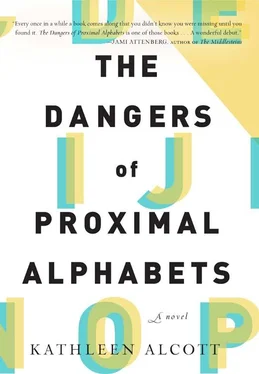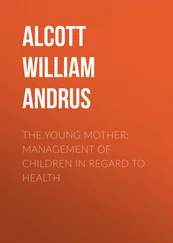But then a woman I hadn’t noticed made her way back inside. She was wearing a loose pale blue linen dress belted at the waist, flat leather boots. Her dirty brown hair was messily pinned and some strands escaped and fell down her cheeks, and she seemed determined. She could have been twenty-five or thirty-eight; her age seemed like something she chose day to day.
As she crossed the room Jackson locked menacing eyes with her, and my ears began ringing again, the water of my body revolted. She did not crouch to his level as the others had done, but stood and addressed him from a distance of five feet that seemed not to be for his comfort or security but hers. She revealed herself as a writer for the local arts journal, the sort that is free at newsstands but still respected and commonly found on coffee tables of those in the know. All of me flashed, and when I turned to Paul in anger, he had his hands in prayer position pressed to his lips. He tried to silently communicate that he had kept his promise, had not directly contacted the press, but I could tell a small, secret part of him was still pleased. It was then I cursed him as selfish, began to convince myself that he had manipulated me or brought all this about, instead of the reverse.
I expected Jackson to gaze just beyond her, as he had with all the rest who’d approached, but instead he made small adjustments that signified opening: he uncrossed his arms and set his drink on the floor, made Xs of his fingers and stretched them, inspected her and smiled, small and calm.
“Ida, Paul,” he said, and actually changed his position in the chair, “Would you mind leaving Caroline and I alone for just a minute? ”
And we did. We had no choice. Although the way he enunciated her name, with specious respect and cordiality, as if they were old friends with in-jokes, was terrifying. We had absolutely no reason to believe it would turn out well.
We stood outside together. The people had dissipated, but we could hear them making their leisurely, satisfied paths home, not far along and in no rush. The laughter and speech of educated people freed from a quiet space of intellect and reflection is instantly recognizable. It’s a sound I generally cherish, a sound in which I find comfort and whole rooms of pleasant memories in my head, but that night it echoed in my ears as masturbatory and self-indulgent.
As children, we often stand by doors listening, but the doors are larger and the sounds we’re searching for with our breaths held are of a different nature. They’re news of an adult world we don’t understand but wonder at the lexicon of, or perhaps the gurgle of a friend’s teenaged sister on the telephone. In the first case we’re probably hoping to hear what it is our parents are saying about the world we live in, and in the second we’re enraptured with a world every source says we’re bound for. Both occasions are somewhat joyous: as children, when we stand by doors, it is for a stolen pleasure.
Standing by a door listening as an adult always bears an ominous scent. It’s always an act we know we should not morally commit but are driven by some grave circumstance to anyway. We are never absorbing precious bits of other worlds, but pieces of our own we’re afraid to know but more afraid not to.
For the first minute, we heard close to nothing. Then Jackson’s voice escalating, the breaking of glass, the thud and clatter of flat things reaching the ground.
“They’re not mine,” we heard, emphatic if muffled, then the female protest—
“THEY’RE”—crash—“NOT”—crash—“MINE.”
We saw the doorknob jiggled and we parted in the arc of the opening door. Jackson, who strode into the middle of the street and made a sharp turn in the direction of our apartment. I allowed myself one peek into the gallery, where Caroline the journalist stood almost perfectly in the space’s center with her arms wrapped around her torso, looking like an art piece herself, her face not blank but searching for an expression or waiting for someone to walk by and comment, fill her with their own memories and interpretations, then walk away and leave her bare again.

Following him home, twenty feet behind; his momentum was in every way forward and unapologetic. The few taxis still out not bothering to honk but yielding to him, the flashing crosswalks urging him on in solidarity, the bits of city debris skirting his feet as if curious. The door of our apartment not opening, something massive pushed against it. Still trying the key over and over, if only to feel that I was making something move and turn. Knocking first daintily, as if it weren’t my home, then desperately, sliding down the doorframe and feeling the hum of the frantic beyond the wood.
I gave up after an hour or so and walked to Paul’s, the sun coming up behind something of a cruel reminder of what had changed since it had been out last. The fuzz of wine and nervous breath hummed on my teeth, and the homeless people who glared at me from their cardboard nests suggested I was no better, like at least they had known when to settle.
Paul was not surprised when he answered the door. He smiled weakly and pointed his index finger at the cleft of his chin like, Go ahead, I deserve it . Instead I fell into him and he raised me like his new bride, placed me on the smaller of the two couches. On the coffee table was half a fifth of fine whiskey and on the other couch was Caroline, covered in a beige fleece throw blanket, her mouth open, one arm hanging off the couch, one sock on, all elegance and confidence and mystery gone. I reached for the bottle and drank deeply; Paul nodded in encouragement and gestured for me to pass it. We didn’t speak, just drank and sighed, and I don’t remember falling asleep, only gaining consciousness with the sounds of the park below Paul’s window, the shrieks of children playing games. He and Caroline were both gone, and a note under the empty bottle detailed that there were strawberries and eggs in the refrigerator and that we should most certainly talk later if I felt strong enough.

Sundays in our neighborhood: brash, bright, infectious. Whole generations of Mexican families in their church best, the smallest children fussing with their shellacked hair, mariachi bands, orchid plants of every size and color at special prices, street sales, vendors pushing their jingling carts of coconut ice cream bars or churros or bacon-wrapped hot dogs. The smells and sounds Jackson and I delighted in waking up to, an alarm clock of life if there ever was one. I waded through them unnoticed and saw, upon reaching our building, that our bedroom window was open and the curtains in their simple ritual of floating in and out of it.
Jackson had removed whatever had been blocking the door, just as he’d removed himself. He had taken the things that he considered definitively his; some of them I hadn’t even realized he recognized as clearly his until they were missing, and felt both guilty for not knowing and foolish for thinking they’d also been mine.
Our yellow cotton bedspread, on which I’d sewed a large patch of Jackson’s childhood cowboy sheets, was now just yellow with a large interior rectangle of brighter yellow, some of the thread of the stitches still clinging. It would have been less of an insult if he’d just taken the whole thing, would have left me cold more physically.
What had he done with the fish? How could he possibly have taken all of them? Pictures formed in my head of Jackson distraught and carrying our fish in plastic bags, clutching them to his heart, asking then insisting people on the street move out of his way.
Читать дальше













